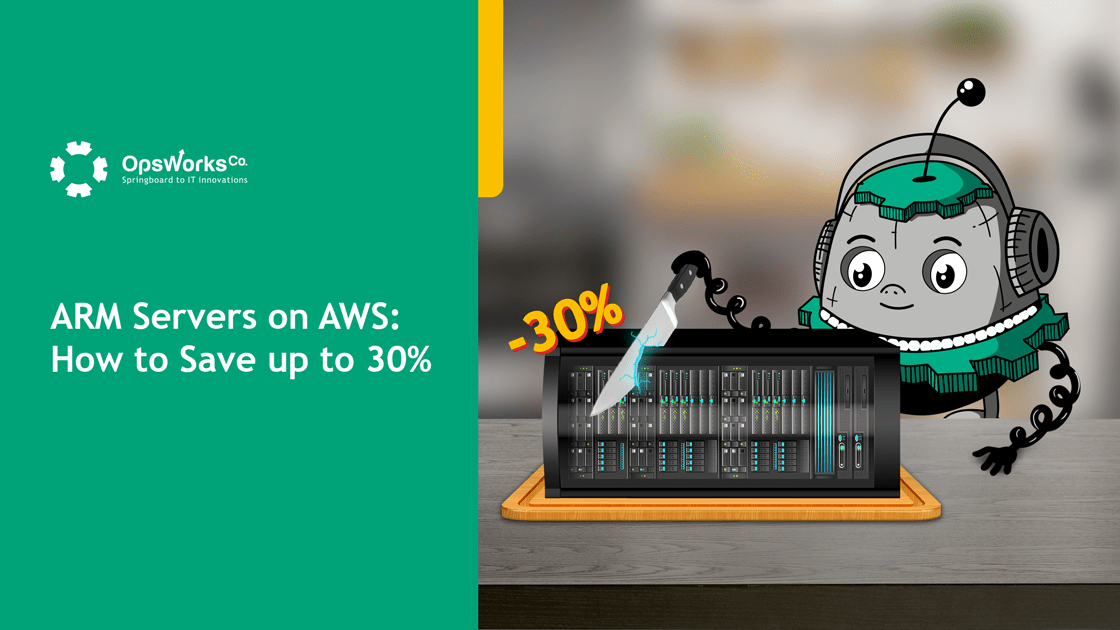
Cloud technology is becoming one of the fastest-growing areas in I.T. Based on the Cloud Services Global Market Report: Covid 19 Impact and Recovery to 2030, the industry is anticipated to attain a valuation of nearly $USD800 billion in 2025. This calculation uses a compound annual growth rate (CAGR) of fourteen percent. The technology is rapidly being adopted into various sectors globally, and supply chain management is no exception. It is vital for businesses to optimize their operations by implementing this beneficial emerging technology into their supply chain systems.
The objective of any business endeavor is for its services or products to reach its target customers. Regardless of how excellent the quality of these products or services is, the business will become redundant if it cannot get them to the clients who require them. A supply chain plays a pivotal role in the success or failure of any business. The supply chain refers to the systematic collection and connection of resources. It includes financial, material, human resources, and information that comes from the producer to the customer. It also involves planning, activities, organization, and administration. It is paramount that the coordination and communication are excellent throughout the entire supply channel, including middlemen and intermediaries.
Given the benefits of supply chain management towards the sustenance of an entity, it is key that it is at peak efficiency. Several technological tools have been developed to enhance the scope, efficiency, and performance of supply chains. Cloud-based solutions have proven to be a powerful tool, and their contributions in supply chain processes are invaluable.
Adoption
While it is essential to implement cloud-centered technologies in supply chain management, the process should be done properly. Various aspects have to be taken into consideration to make a successful transition. It is vital to ascertain that you implement the strategy that is best suited to your supply chain. If your supply chain is reliant on legacy systems, then there is a need for an implementation approach that will transfer all your information without glitches. It is also important to note that some supply systems are difficult to shift towards cloud platforms. These include supply chain systems which are heavily customized. Also, supply chain systems that are heavily integrated with physical processes or other technologies that are not smoothly compatible with cloud deployment may present difficulties.
Besides that, some organizations intend to move some aspects of their supply chain to the cloud while others remain as they are. These types of transitions require deployment strategies which are unique from those used by companies that want to shift their entire supply chain management to cloud platforms.Organizations should also be prepared with personnel required to administer and utilize cloud platforms to derive the maximum benefits from it. If the transition is executed properly, then companies can enjoy the many advantages of cloud-based supply chain management.
Supply Chain Management Software
Most organizations utilize cloud-based supply chain management advantages. A prominent instance of companies taking such an approach is the financial services giant JP Morgan Chase, which recently embraced a digital transformation blueprint that includes blockchain, big data, robotics, and cloud technology. Cloud supply chain activities that can be optimized by this technology include forecasting and planning, logistics, service, and sourcing and procurement. Do you want to know how you can implement cloud technology for these activities? Read on.
Procurement
The process of procuring materials is among the most vital aspects of the supply chain. Businesses can utilize cloud platforms as the master databases that contain all of the details concerning different suppliers. The benefit of such platforms is they generate order requisitions to the best suppliers once the organization’s set minimum requirements have been satisfied. It reduces the hours of human effort to complete assessments and order requisitions.
Logistical Arrangements
Logistics remains a major source of headaches for administrators. Anything short of excellent logistics can have catastrophic results even in the best supply chain. In this area, a cloud-based supply chain management solution can be used for optimizing transport routes, tracking operations, and automating inventory management. Companies and organizations can also share and analyze data to help the various entities involved in logistics to plan effectively.
Services Management
The administration of services and spare parts requirements can be optimized with an SCM solution. Regular services and spare parts can be requested once they fall below a certain threshold to avoid the inconvenience of shortages. Furthermore, cloud solutions are used to ascertain the time when servicing is due, which is quite beneficial as it reduces infrastructure downtime.
There are several benefits of supply chain management on cloud platforms. Therefore, every forward-thinking business must quickly embrace these technological tools in order to optimize their operations. In the following paragraphs, you will find out how implementing cloud computing in your supply chain will benefit you. Want to know how your business can leverage cloud technologies in its supply chain? Follow our lead, and we will tell you more.

Affordability
According to Clay Magouyrk, the Senior Vice President of Engineering at Oracle Cloud Infrastructure, businesses typically save between 30-50% by moving operations to their cloud services compared to updating their on-premises infrastructure. The fundamental basics of supply and demand have not been altered even in the face of the paradigm shift that has occurred in the digital space. Cloud-based supply chain management has birthed an extremely competitive ecosystem where the user profits both with respect to features and costs. An SCM solution enables entities to cut their costs as their client base expands. It is critical to note that a fully functional data storage network coupled with administration packages, system administrators, and merged with your local systems will demand a vast financial outlay considering the cost of facilities, expertise, and time. However, cloud solutions allow you to share the cost with other users that require the service. As a result, it is quite affordable. A cloud supply chain solution does not demand investments with respect to in-house packages and servers. Organizations will only have to pay for subscriptions.
Scalability
Traditionally, modifying the size of an organizations’ supply chain was a hectic endeavor that required a number of considerations. However, cloud computing has a large body of network connections and data, so a cloud-based supply chain management solution simplifies the process of scaling upwards. One only has to input a new set of details on the cloud platform.
Automation
Cloud supply chain solutions also empower organizations with automation abilities and information analytics to enable a smart resupply system. They perform an efficient analysis that hinges on the input of business and coding pundits. Contrary to popular belief, the program does not take charge of your business, it only avails your administration personnel with the ability to make sound decisions with minimal effort.
Speed
According to the Redmond-headquartered technology heavyweight Microsoft Corporation, supply chain cloud solutions are available on a self-service and on-demand basis. Therefore, even vast quantities of computing resources can be granted in a short period of time. It can be done in a few keystrokes, hence, it gives entities great flexibility and eases the stress associated with capacity planning. Aside from that, cloud technology’s proactive identification and prediction of risks and opportunities enable companies to swiftly leap into action, allowing enhanced responsiveness to changes in demand patterns. Last year, big financial institutions, such as Goldman Sachs, Deutsche Bank, and HSBC decided to adopt cloud-based approaches to accelerate their digital shift.
Real-Time Performance Assessment
In business, the occurrence of simultaneous happenings is a common phenomenon. Usually, these occurrences happen so swiftly that there is an information overload. The main benefit of implementing cloud-based systems in your supply chain is that they enable businesses to stay in sync with developments in their supply chain on a real-time basis. It helps managers make judgments quickly, therefore, improving operations.
Security
One of the best ways to keep your supply chain information secure is to embrace cloud-centered technologies because the information and codes in use transit between several servers. As a result, the processing speed remains ultra-fast and the service remains usable even if a single location breaks down. A cloud-based supply chain management solution enables information backup, disaster recovery, and continuity of business easily and cheaply as the information can be reflected in several locations on the providers’ network. Providers of cloud services, such as Azure, Google, and Amazon are renowned for their strict adherence to security protocols including encryption, network segmentation, disaster recovery, and vulnerability management. Cloud computing is also independent of the area you are accessing it from, therefore, a bug in the system will not have an effect on your supply chain.
Performance
The providers of a cloud-based supply chain management solution usually operate on a worldwide network of secure data centers. They are frequently upgraded to the latest generation of ultra-fast and reliable computer hardware. It is advantageous compared to an isolated corporate data center as it results in decreased network lag for applications. In addition to that, it has economies of scale. Organizations will be assured that they are making use of the best cloud technologies available at the time, and their supply chain will profit from the cloud centered solutions.
The critical role of cloud-centered technologies in supply chain management cannot be overstated. It is evidenced by the massive investments being made in the sector across the globe. For instance, Alibaba Group Holding Limited, the Chinese e-commerce juggernaut, has announced plans to invest $28 billion in the cloud over the next three years. This shows that cloud technologies are taking center stage in the digital technology world. While most entities have the skill and capacity to manage their supply chain, the presence of cloud-based supply chain management systems enables them to access the same data with greater efficiency, using minimal time and resources. It also eradicates the capital requirements of acquiring computer hardware, software packages, building up and operating on-site data centers, and IT expertise for setting up the infrastructure. A supply chain management service centered on cloud technologies simplifies the day-to-day aspects of running business operations. It enables the organization’s personnel to focus their time and energy on more important matters. Organizations will derive a variety of benefits from shifting their supply chain management to cloud platforms. In other words, cloud-based supply management is the present as well as the future. If you are ready to adopt cloud technologies in your business’s supply chain, then you need a qualified DevOps team. OpsWorks Co. experts have all the knowledge and skills to quickly implement new technologies and reduce your business expenses.





